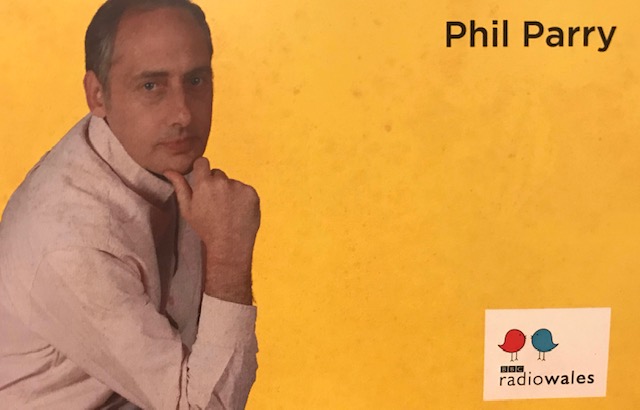- Polls apart - 4th March 2026
- Repeating on you… - 4th March 2026
- History man - 3rd March 2026

After 23 years with BBC Cymru Wales (BBC CW), and 38 years in journalism (when he was trained to use clear and simple language, avoiding jargon), here our Editor Phil Parry looks at how key phrases have always heralded a crucial turn of events, but are also being used today by those at the very top to deny controversial episodes took place.
In the past he has described how he was assisted in breaking into the South Wales Echo office car when he was a cub reporter, recalled his early career as a journalist, the importance of experience in the job, and made clear that the ‘calls’ to emergency services as well as court cases are central to any media operation.

He has also explored how poorly paid most journalism is when trainee reporters had to live in squalid flats, the vital role of expenses, and about one of his most important stories on the now-scrapped 53 year-old BBC CW TV Current Affairs series, Week In Week Out (WIWO), which won an award even after it was axed, long after his career really took off.
Phil has explained too how crucial it is actually to speak to people, the virtue of speed as well as accuracy, why knowledge of ‘history’ is vital, how certain material was removed from TV Current Affairs programmes when secret cameras had to be used, and some of those he has interviewed.

He has disclosed as well why investigative journalism is needed now more than ever although others have different opinions, how the pandemic played havoc with media schedules, and the importance of the hugely lower average age of some political leaders compared with when he started reporting.
It is clear that key phrases are used by those in power, and sometimes employed to hide the truth.
A recent case can be seen in the controversy now about a BYOB (‘Bring Your Own Booze’) party, and other get-togethers (that have been described as “industrial scale”), which severely damaged Boris Johnson.
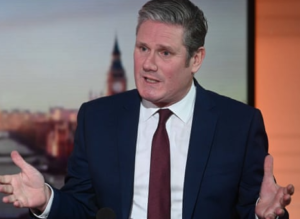
The leader of the opposition Labour Party, Keir Starmer said on the BBC Sunday Morning show yesterday: “I think (Mr Johnson) broke the law. I think he’s as good as admitted that he broke the law. And, after all, Downing Street has now apologised to the Queen for some of the parties that have gone on.”
Speaking in the House of Commons last week, the Prime Minister offered his “heartfelt apology” for attending the BYOB gathering in the Downing Street garden on May 20 2020, when everyone else was governed by lockdown rules, and were forbidden to go to ‘super-spreader’ events.
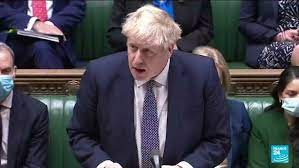
But, typically, his apology was swiftly followed by a strong caveat which included different wording. He considered it a “work event”, and, anyway, he only stayed for 25 minutes.
To anybody else it was a party.
Now there are details of ANOTHER party, so we can expect to see more critical terminology used, along with apologies that aren’t real apologies.
Media outlets have reported that an assembly took place (which Mr Johnson did not attend), made up of about 30 people drinking alcohol and dancing to music until the early hours, on April 17, yet restrictions at the time banned indoor mixing between different households.
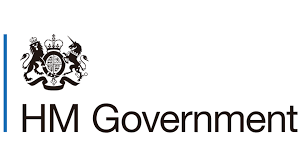
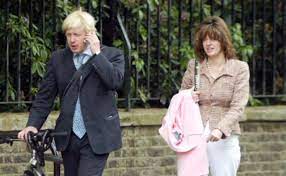
Mr Johnson is, though, well known for using colourful phrases which actually hide the truth.
He conducted an extramarital affair with Spectator columnist Petronella Wyatt, and initially dismissed the claims as an “inverted pyramid of piffle”, before more concrete evidence came to light, which apparently turned the affair the right way up, and Ms Wyatt’s mother later claimed that her daughter had been forced to undergo an abortion as a result of her relationship with Mr Johnson.

Probably one of the worst things Mr Johnson did, when important expressions were again used, was when, in 1990, he was secretly recorded agreeing to provide the address of News of the World reporter Stuart Collier to his friend Darius Guppy, who was trying to arrange to have the journalist’s ribs cracked as revenge for investigating his activities.
In the audio recording, which was made public in 1995, Mr Johnson can be heard saying: “How badly are you gonna hurt this guy?”, while expressing concern that he would be associated with the attack.
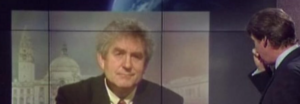
Welsh politicians, too, employ colourful language – but usually to sell a critical agenda to the public, rather than for hiding a contentious one.
The former First Minister of Wales (FMW) Rhodri Morgan, was well known for using key (often bizarre) phrases in explaining policy.
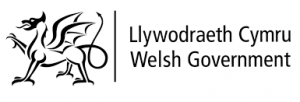
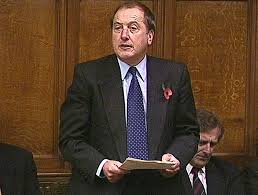
On one famous occasion, he was asked by Jeremy Paxman on Newsnight whether he wanted to be FMW, and replied memorably: “Do one-legged ducks swim in a circle?” (which means ‘yes’).
The one-time Secretary of State for Wales Ron Davies, was no less responsible for making critical comments, although they were less colourful.
Before spearheading the (just) successful devolution referendum in 1997, he referred to devolving power as “a process, not an event”.
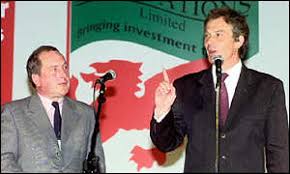
Two years later in a pamphlet published ahead of the first elections to the new National Assembly for Wales, he explained: “Devolution is a process. It is not an event and neither is it a journey with a fixed end-point”.
In journalism, as well, certain phrases are always used.
The first News Editor when I started my career in 1983 (they’re now known as ‘Content Editors’) on the South Wales Echo (SWE) (which was then the biggest-selling paper produced in Wales, and one of the most important evening newspapers in the UK), Stuart ‘Minto’ Minton, had several of them.
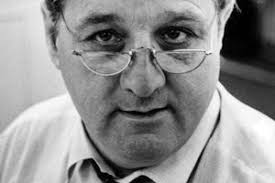
He used to utter the immortal words: “Come into the office”, which meant go to his desk, because you were about to be given a difficult story to look into.
Another one when you entered the newsroom, was: “Don’t take your coat off”, which meant don’t sit down and make yourself comfortable, because you are about to be sent out on an important assignment straight away.
The Editor Geoff Rich, also used them, although they were usually scribbled in notes, and often came in a truncated form.
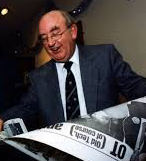
One was the initials: “PSM”, which always sent terror into the heart of a reporter, because they stood for: “Please See Me”.
Mr Rich was only one of many who knew the power of a well-worn expression.
They always seem to be used by people in power don’t they?!
Tomorrow – how the latest extraordinary mix up on the flagship television news programme with Wales’ biggest broadcaster has been publicly pointed out by one of its own journalists, and underlines earlier blunders.
Details of Phil’s astonishing award-winning journalistic career (when interpreting the reality behind key phrases was crucial) as he was gripped by the rare neurological condition Hereditary Spastic Paraplegia (HSP), have been released in a major book ‘A GOOD STORY’. Order it now!

Regrettably publication of another book, however, was refused, because it was to have included names.









